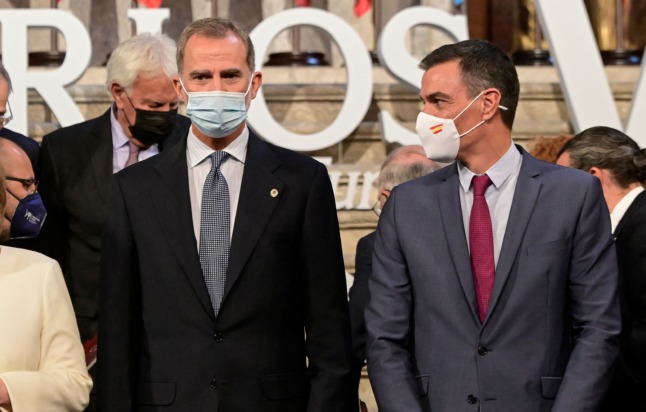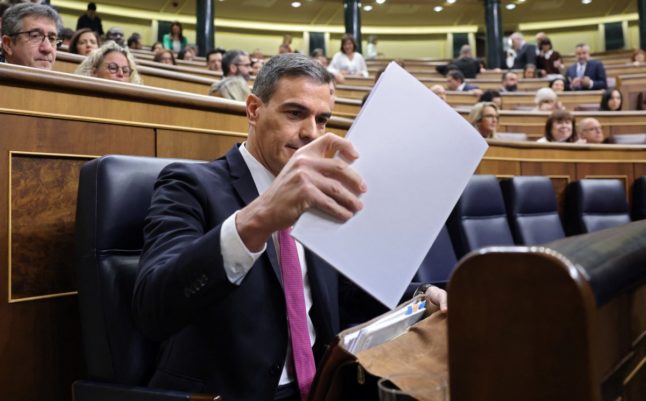Spain’s Prime Minister Pedro Sánchez on Tuesday called into question the legal protection Spanish monarchs are awarded under the Spanish Constitution.
“I think it’s not necessary for the king’s inviolability to be recognized, it’s the product of another era, a legitimate one at that stage, but not something for a consolidated democracy with more than 40 years of history,” Sánchez told Spanish radio station Cadena Ser on Monday.
Article 56.3 of the Spanish Constitution states that “the King is inviolable and is not subject to liability”.
In other words, due to the king or queen’s position, they cannot be subjected to any judicial process as they cannot be held responsible for their actions.
That means that Spain’s current King Felipe VI cannot be tried whilst he is Head of State.
However, Sánchez’s views on sovereignty immunity were not necessarily aimed at the current monarch, who he praised for the fact that “Felipe VI defends a way of carrying out his responsibilities as Head of State in a contemporary way”.
The PSOE socialist leader went on to acknowledge that to reform this aspect of the Spanish Constitution, it would be necessary to have the support of the main opposition party: staunch royalists the Popular Party.
“It takes two to tango,” Sánchez concluded.
The Spanish Prime Minister’s words may have been aimed rather at emeritus king Juan Carlos I, who stepped down in 2014 after a series of scandals, a crisis for the Spanish royal family he has only worsened since then.
Spain’s ex-king has been in exile in the United Arab Emirates since August 2020, with mounting legal problems involving tax fraud, kickbacks and even a restraining order for harassment from his former girlfriend.
READ ALSO: ‘Alone and bored’ – A year after exile, legal woes haunt Spain’s ex-king
According to reports he’s now eyeing a return to his homeland, using his royal immunity to avoid any prosecution in Spain.
But does the former king enjoy the same legal protection even though he’s no longer on the throne?
Juan Carlos I has what’s called “aforamiento” in Spanish rather than the “inviobilidad” that King Felipe still enjoys.
In theory, they grant different degrees of legal protection, but in practice after a legal reform in 2014 other members of the royal family – queens, princes, former kings and princesses – obtained extra immunity from judicial processes in a similar way to what ruling monarchs enjoy.
Sánchez on Tuesday reiterated the need for King Juan Carlos to give explanations specifically on “the reasons that have led him to be absent from Spain and on what is being seen in the media”.
Asked about the possible return of Don Juan Carlos to Spain, Sánchez recalled that it is not a choice that “corresponds” to him, stating that he respects the decision made by the king emeritus.



 Please whitelist us to continue reading.
Please whitelist us to continue reading.
😍Chat Español gratis con chicas
👇
https://fb.sv/gratis_chat
Leave the King alone!